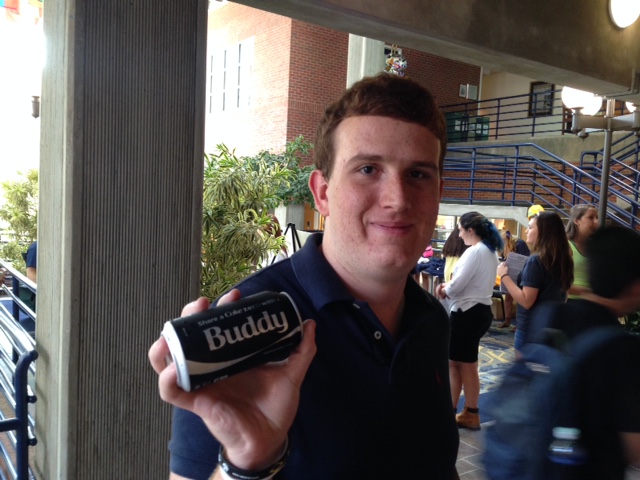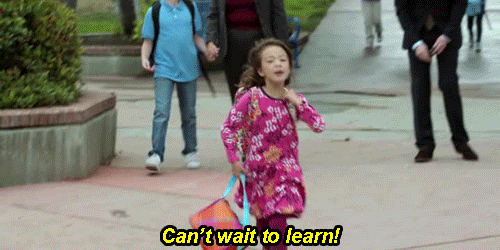I recently read an article that gave valuable insight into why life for a person with high functioning autism (frequently still called Asperger’s Syndrome) is so challenging. It’s one of the best I’ve read to help us “neurotypical” people empathize with those on the spectrum. If you know a single person on the autism spectrum, please take a moment to read this (click hyperlink above). I forwarded it to several people that I especially wanted to read it, and I hope they did. If we can change the lens we view people with ASD through, our interactions with them can become more positive, and hopefully there will be less misconceptions on our part for their actions.
Let’s be honest. Sometimes, it’s easy to get frustrated with someone who gets upset by so many things that “shouldn’t” bother him. We think, It’s not that loud, it’s not that bright, I can’t even hear anything. It’s tempting to want to say, “Just do it.” Whatever “it” happens to be at the moment. Go there. Do that. Say this. But what me, and anyone else that loves a person on the spectrum, sometimes forget is how much tenacity, sheer will, and courage it takes to just get through a plain old day. Like so much of autism spectrum disorders, this tenacity is invisible. The world doesn’t see it, because the world doesn’t see what it takes for someone on the spectrum to cope with his or her challenges in the first place.
If you’ve read my previous blog post What I’ve Learned in the Asperger’s Trenches, you’ll know I have a son who was diagnosed with Asperger’s in preschool. He’s almost 21 now, and even though it’s been a long and sometimes painful journey to get to this point, we still celebrate the milestones he reaches–even though some days each tiny step forward is followed by a big leap backwards. Life is tougher for him that I wish it was. But I wanted to write a post acknowledging exactly what it’s taken for him to get to where he is today.
I chose the word tenacity for the title of this blog because it represents one of my son’s character traits that has been a part of his personality for as long as I can remember. He actually has many of the same personality traits as terriers: intelligence, loyalty, bravery, and especially tenacity–an absolute unwillingness to give up on something he’s set his mind to do. But it’s the trait of tenacity that’s helped him persevere through the worst times.
This trait showed up at an early age in my son. His preschool teacher observed that he was very rule oriented and thrived on structure. She used this to set goals for him, and by God he was going to make that goal no matter what. It continued on into Boy Scouts. He joined a troop when we moved back to Georgia (from Germany) that had some boys who ostracized him, at one point even informing him that he couldn’t stay in their patrol. I’ll admit, I suggested he find another troop, but my son wasn’t having it. He called the scout master and asked if the other scouts could decide who stayed in patrols. When he heard the answer was no, he said, “Good. I’m staying in my patrol then.” He wasn’t going to let anyone keep him from his goal of becoming an Eagle Scout. Which he accomplished beautifully.

Fritz and Zoey. Photo courtesy of Ms. Mechelle Lang.
When he started playing the saxophone, he was in one of the lowest “chairs” in his middle school band. This didn’t seem to bother him until the kid next to him started annoying him throughout the entire class. I made a comment that if he moved up to a higher chair, he wouldn’t sit next to that kid anymore. Once my son latched on to that concept, he started practicing the saxophone like his life depended on it. By the end of the year, he wasn’t only in the top chair he was awarded the Outstanding Woodwind Player in his band at the final concert. In high school he was nominated for the Governor’s Honors Program for music.

Yamaha Alto Sax. Image from Wikipedia
When he started looking at colleges, his first choice was Georgia Tech in Atlanta. Known for extremely competitive acceptance rates and challenging course work, it was nevertheless where he set his sights on going. Not only did he get accepted, he was accepted “early action” which affirmed his decision to go there in the first place. But it hasn’t been easy, to say the least. At Georgia Tech, sheer tenacity has kept him hanging on through some of the most challenging years of his life. When he mentioned the possibility of transferring to a less rigorous school, my husband and I fully supported his decision to do so. But ultimately, he has stuck it out at Tech and will be a senior in August when the Fall semester begins. Seeing him walk across that stage to receive his diploma will be an absolutely overwhelming moment of emotions for me, representing a culmination of years of overcoming obstacles.

Photo copyright: The Georgia Institute of Technology
If you are a parent of a child on the spectrum, I’d love to hear from you. We’re definitely all in this together. My best advice is to take each day at a time. Don’t look ahead too far into the future, but celebrate the small successes of today. I’d love to celebrate your child with you and cheer for him or her to reach every single goal.


 Susan does that are exactly like every other kid in the world. It isn’t until the very last page of the book that the reader will discover that Susan is in a wheelchair. I took care of a beautiful, smart and sassy little girl who uses a wheelchair and I see her on every page. I highly recommend this book to parents of preschoolers. When you reach the end of the book, the illustration of Susan in her wheelchair provides the perfect teachable moment to discuss all of the similarities Susan has with your own child.
Susan does that are exactly like every other kid in the world. It isn’t until the very last page of the book that the reader will discover that Susan is in a wheelchair. I took care of a beautiful, smart and sassy little girl who uses a wheelchair and I see her on every page. I highly recommend this book to parents of preschoolers. When you reach the end of the book, the illustration of Susan in her wheelchair provides the perfect teachable moment to discuss all of the similarities Susan has with your own child.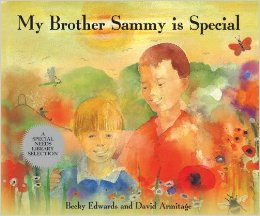
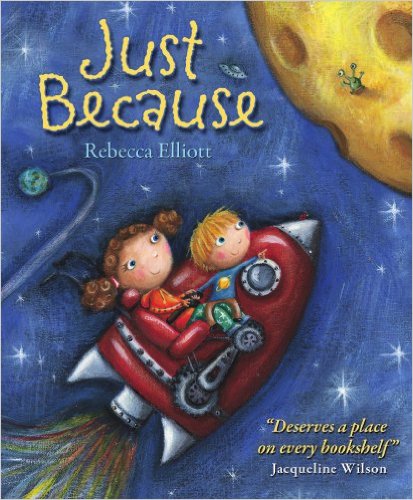
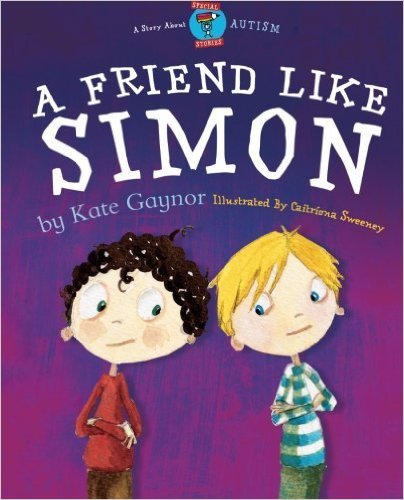
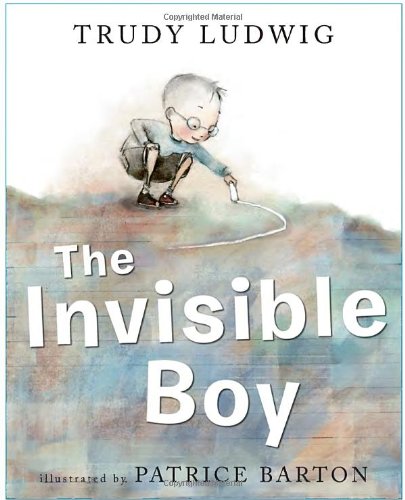 For any parent of a quiet child that’s felt left out of the “popular group” at school, this book is a true find. The illustrations by Patrice Barton add to the impact of the words because Brian (the invisible boy) starts out gray and becomes more colorful as he begins to see himself as fitting in with someone–anyone. This book truly shows that it only takes ONE kind child to reach out to an “invisible kid” and make them feel a part of a class. Parents, I urge you to teach your children to be this one child. There are “Brians” out there in every classroom. I’ve taught elementary school, and I’ve witnessed the change one child can make.
For any parent of a quiet child that’s felt left out of the “popular group” at school, this book is a true find. The illustrations by Patrice Barton add to the impact of the words because Brian (the invisible boy) starts out gray and becomes more colorful as he begins to see himself as fitting in with someone–anyone. This book truly shows that it only takes ONE kind child to reach out to an “invisible kid” and make them feel a part of a class. Parents, I urge you to teach your children to be this one child. There are “Brians” out there in every classroom. I’ve taught elementary school, and I’ve witnessed the change one child can make.